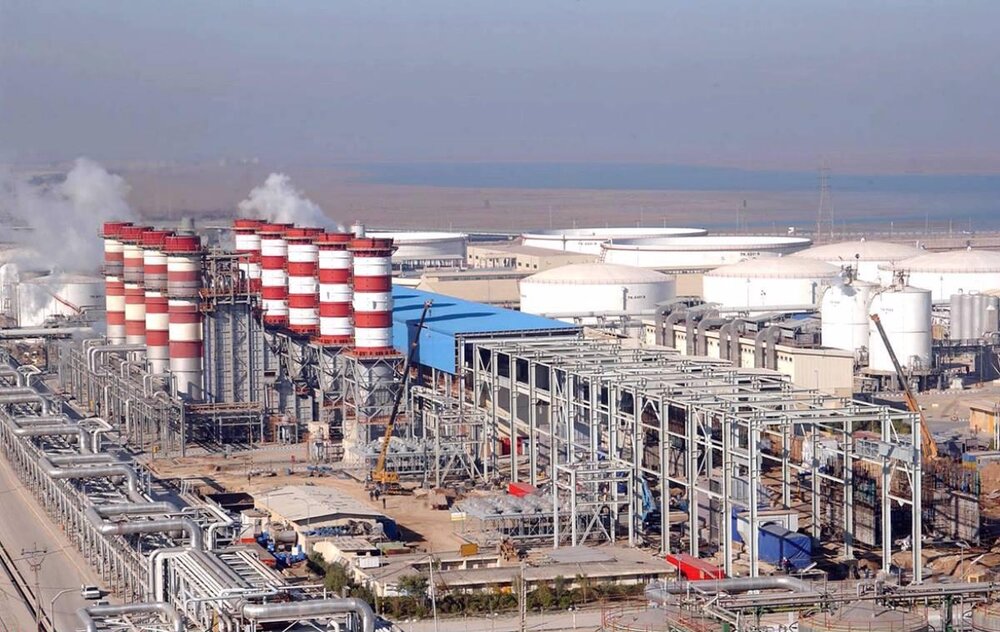Downstream petchem sector, a pivot point for Iran’s economy

TEHRAN – They say when life gives you lemon make lemonade, and that is what exactly Iran has been doing with the U.S. sanctions. The significant development of Iran’s petrochemical industry following the re-imposition of the U.S. sanctions has become an exact definition of a “silver lining” that could be sought in every bad situation.
Facing the restrictions that the unjust U.S. sanctions brought about for the oil industry, its development has not been halted and, with a change in strategies, the Oil Ministry has been distancing itself from crude selling and is moving toward the production of products with more value-added.
One of the major areas for the realization of this goal has been the petrochemical industry, where a wide range of valuable products can be produced from Iran’s vast oil and gas resources.
The petrochemical industry plays a crucial role in Iran’s non-oil economy, as the export of such products is the second-largest source of revenue for the country after crude oil. Petrochemical exports already constitute nearly 33 percent of the country’s non-oil exports.
So, pursuing a third leap in this sector, the country aims to boost its annual petrochemical production capacity to 100 million tons in the next Iranian calendar year (March 2021-March 2022) from the current 66 million tons.
While the leap in the petrochemical output is a big measure to boost Iran’s non-oil exports, it also plays a very significant role in the realization of the current Iranian calendar year’s motto, which is “Surge in Production”.
The development of the petrochemical industry’s upstream sector has been underway for several years, and the Oil Ministry has been following comprehensive programs for developing this sector over the recent years as the development of the giant South Pars gas field (Iran shares with Qatar in the Persian Gulf) has been supplying more feedstock to the petrochemical units.
The downstream industries, however, need more attention to become able to keep up with the fast pace of development in the upstream sector.
In the year of the “surge in production”, some positive measures have been taken by the National Petrochemical Company (NPC) and the Oil Ministry in this regard too, and great plans are underway for the expansion of the downstream sectors.
Earlier, the NPC Managing Director Behzad Mohammadi announced that the company is preparing a master plan for developing the downstream petrochemical industries.
Mohammadi said the development of petrochemical industries is among the top priorities of the Oil Ministry, and NPC is working on a master plan to boost the downstream sector.
Iranian parliament’s Energy Committee has also been very keen on encouraging the Oil Ministry to accelerate the development of the petrochemical industry’s downstream sector.
Mousa Ahmadi, deputy head of the parliament’s Energy Committee said on Saturday that: “Undoubtedly, the downstream sector of the petrochemical industry plays a significant role in the country's economy, so more planning and investment should be done to develop and strengthen this sector.”
In an interview with Shana, Ahmadi said that the petrochemical industry is moving in the direction of development and progress, adding: "Despite some restrictions imposed by [the U.S.] sanctions on the country's industries, including the petrochemical industry, the increase in the production of petrochemical products shows the industry's improvement."
If the leap in the petrochemical industry is accompanied by development in the downstream industries, it will not only create more job opportunities but also brings added value to the country, he noted.
Petrochemicals are a major source of revenue, accounting for the country's largest non-oil exports, he said, adding: “Fortunately, there is a lot of potential for the development of Iran's petrochemical industry that must be utilized effectively.”
EF/MA
